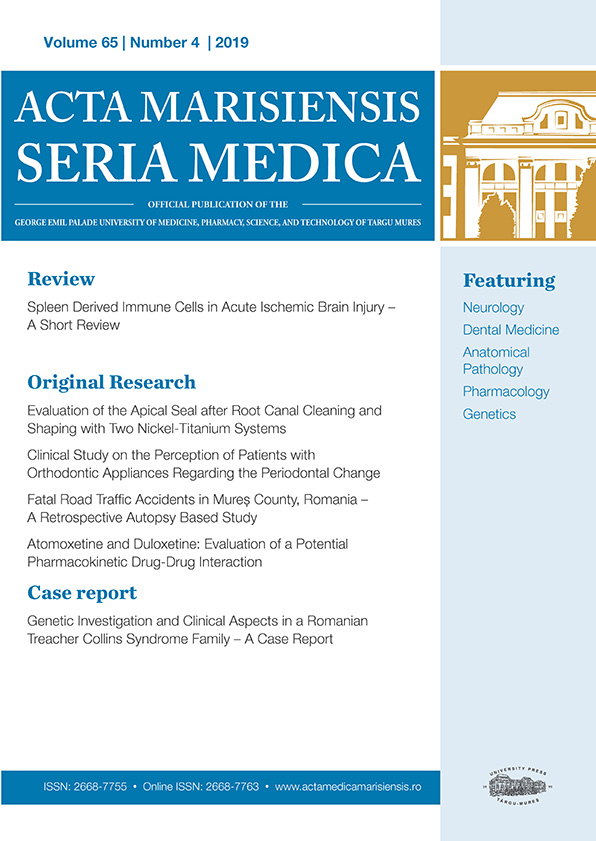A brief reflection on the role of cholesterol in psychopathology among female psychiatric patients
DOI:
https://doi.org/10.2478/amma-2021-0015Keywords:
cholesterol, psychopathology, suicide risk,Abstract
Objective: Cholesterol is one of the cardiovascular risk factors, but also a core component of the central nervous system. Moreover, hypercholesterolemia and hypocholesterolemia are directly related to numerous mental illnesses too. This study intents to examine the association between cholesterol level and autolytic behavior among female psychiatric patients.
Methods: The present study involves 123 female subjects, who suffered from suicidal thoughts at the moment of hospitalization. The risk of suicidal intentions was assessed by the Modified Scale for Suicide Ideation (Miller et al) and their total serum cholesterol levels were measured.
We performed a case-control, analytical, randomized, observational study at the Clinical Hospital of Neurology and Psychiatry Brasov among adult female psychiatric patients admitted during 2014.
Results: By our results we distinguished 3 categories: 38 patients with low suicide risk, 32 with moderate risk and 53 with high suicide risk. Significant difference can be noticed in the higher suicide risk patients' blood cholesterol levels: 44 patients having under 4,5mmol/L total cholesterol level (83%). Although, in other two categories, this proportion is minimal: in the moderate-risk category were 8 patients, representing just 25 %, and in the low-risk category only 1 patient had her cholesterol level under 4,5mmol/L (2,6%).
Conclusions: According to our results, proposing cholesterol-level as a biomarker for the determination of high-risk suicide behavior can be important. The presence of other important risk factors (sociodemographic and psychiatric variables) can increase exponentially the suicide behavior. The limitations of this study are the relatively small number of cases and the lack of longitudinal subsequent follow-up. Further investigations are needed on a larger and more heterogenous sample of patients in order to clarify this suggestive correlation.
Downloads
Published
How to Cite
Issue
Section
License
Acta Marisiensis Seria Medica provides immediate open access to its content under the Creative Commons BY 4.0 license.









